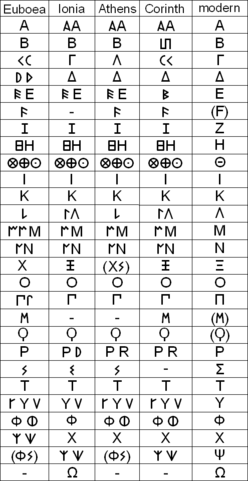Difference Between Ancient Greek and Modern Greek
Table of Contents
Ancient Greek vs Modern Greek
Ancient Greek and Modern Greek are two forms of the Greek language between which some differences can be observed in terms of the philological changes. It is important to know that Greek belongs to the Greek group of the Indo-European family of languages. This group contains the other dialects including Doric, Ionic, and Attic. The most significant difference between Ancient Greek and Modern Greek is the pronunciation. However, the most important observation one can make despite these differences is that Ancient Greek is not so alien to Modern Greek as Latin is to Spanish or French. Keeping that in mind, let us find more information about Ancient Greek and Modern Greek.
It is believed that Ancient Greek took the shape of Modern Greek in about 3000 years. Hence, they are considered cognate languages that belong to the same family but still show some difference between them. It can be said that Modern Greek has been derived to a large extent primarily from Ancient Greek. The similarity between the two forms of Greek is both in the phonological and the morphological sense. There is, of course, some difference between the two types of Greek when it comes to their word-formation or morphology.
It is a generally accepted fact that a person who has studied Modern Greek would be in a position to understand at least 50% of the Ancient Greek texts. Although most roots are the same in both Modern and Ancient Greek, there is some difference when it comes to the usage of grammar.
It is important to know that both the types show syntactical difference too. The syntax is the branch of comparative philology that deals with the way in which the words are joined to form a sentence. In other words, syntax deals with sentence formation. It is understood that both ancient and modern Greek differed from each other in the way sentences were formed in them.
Ancient Greek underwent a lot of changes to become the Modern Greek. These changes are both phonetic and semantic in character. Phonetic changes are changes that take place in the sound whereas semantic changes are the changes that take place in the meanings of a word in a gradual manner.
What is Ancient Greek?
Ancient Greek is the form of Greek language that existed in the world from the 9th century BC to the 6th century AD. When it comes to phonology, there are some interesting facts. In Ancient Greek, we can see long and short vowels, a number of diphthongs, single and double consonants, and a pitch accent.
When it comes to morphology and syntax, Ancient Greek has features such as opative mood, infinitve, dual number, dative case and participles.

Greek Alphabets
What is Modern Greek?
Modern Greek was found around in 1453 AD. In the phonology of Modern Greek, we can see that the pitch accent has been changed to stress accent, most diphthongs have gone missing, and all consonants and vowels are short.
When it comes to morphology and syntax, Modern Greek lost features such as opative mood, infinitve, dual number, dative case, and participles. However, Modern Greek has gained features such as gerund, auxiliary verb forms for certain verbs, and modal particle.
What is the difference between Ancient Greek and Modern Greek?
• Periods:
• Ancient Greek is the form of Greek language that existed in the world from 9th century BC to 6th century AD.
• Modern Greek was found around 1453 AD.
• Capitals and Lower Case Letters:
• Ancient Greek only had capitals letters.
• In Modern Greek, you can see capital, as well as lower cases or simple letters.
• Sounds:
• Sounds such as [b], [d], and [g] existed in Ancient Greek.
• Modern Greek does not have [b], [d], and [g] as they were replaced by softer sounds such as [v], [th], and [gh].
• Phonology:
• In Ancient Greek, we can see long and short vowels, a number of diphthongs, single and double consonants, and a pitch accent.
• In the phonology of Modern Greek, we can see that the pitch accent has changed to stress accent, most diphthongs have gone missing, and all consonants and vowels are short.
• Morphology and Syntax:
• Ancient Greek has features such as opative mood, infinitve, dual number, dative case, and participles.
• Modern Greek lost all the above features and has gained features such as gerund, auxiliary verb forms for certain verbs, and modal particle.
Images Courtesy:
ncG1vNJzZmivp6x7pbXFn5yrnZ6YsqOx07CcnqZemLyue8OinZ%2Bdopq7pLGMm5ytr5Wau26tzZygnqakYrSzscSkZJqmlGLDtHnMqJueqp5itLOxxKRm